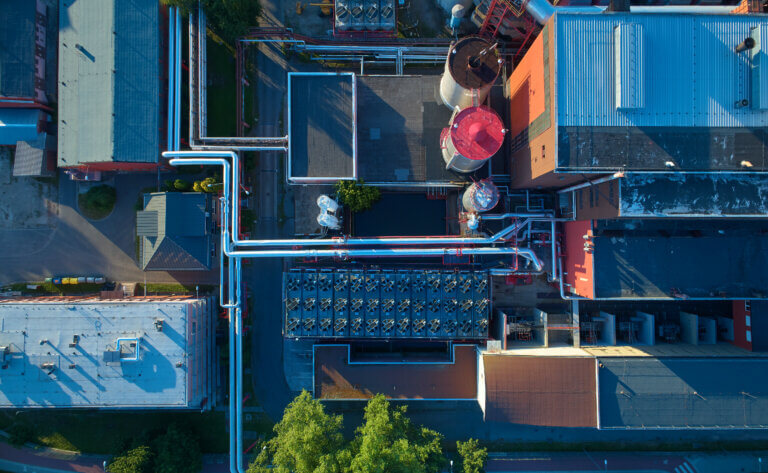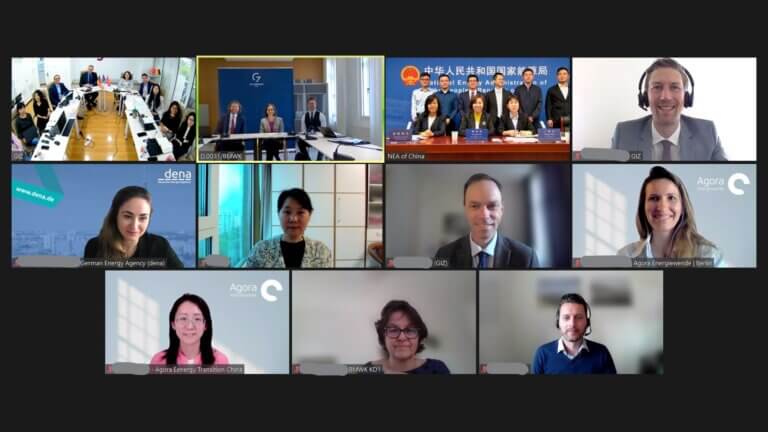On July 9th, the German Federal Ministry for Economic Affairs and Energy (BMWi) and the National Development and Reform Commission (NDRC) held a working-level virtual meeting in the framework of the Sino-German Energy Partnership. The bilateral exchange focused on the latest energy efficiency strategies and policies in both countries as well as the outlook for Sino-German cooperation in the field of energy efficiency. The meeting was headed by Ms. Christine Falken-Großer, Division Director for Bilateral Energy Cooperation (IIA2) at BMWi, and Mr. Xiong Zhe, Divison Director for Energy Conservation and Efficiency at NDRC.
During the meeting, Mr. Xiong Zhe provided an overview of China’s energy efficiency goals, regulations and standards, and discussed the current status of energy conservation in China. He showed that China’s energy intensity fell by 24.6% between 2013 and 2019, while the country still achieved an average annual GDP growth rate of 7% – a positive sign for a gradual decoupling of energy consumption and economic growth in China. For the German side, Mr. Stefan Besser, Division Director for General Issues of Energy Efficiency (IIB1), presented Germany’s new ‘Energy Efficiency Strategy 2050’ and its ‘National Energy Efficiency Action Plan (NAPE2.0)’. The strategy sets a new energy efficiency target for 2030 (-30% primary energy consumption in comparison to 2008). The NAPE2.0, on the other hand, defines and improves key energy efficiency instruments for achieving the strategy’s targets. These include, amongst others, tax incentives for energy-efficient refurbishment, incentives for the renewal of heating systems, and an expansion of support programmes for industry.
Further topics discussed included, amongst others, the current economic crisis and its impact on international business operations, green recovery, and China’s future energy conservation policy. Both sides agreed to continue and strengthen the bilateral dialogue as well as multilateral cooperation on energy efficiency.




